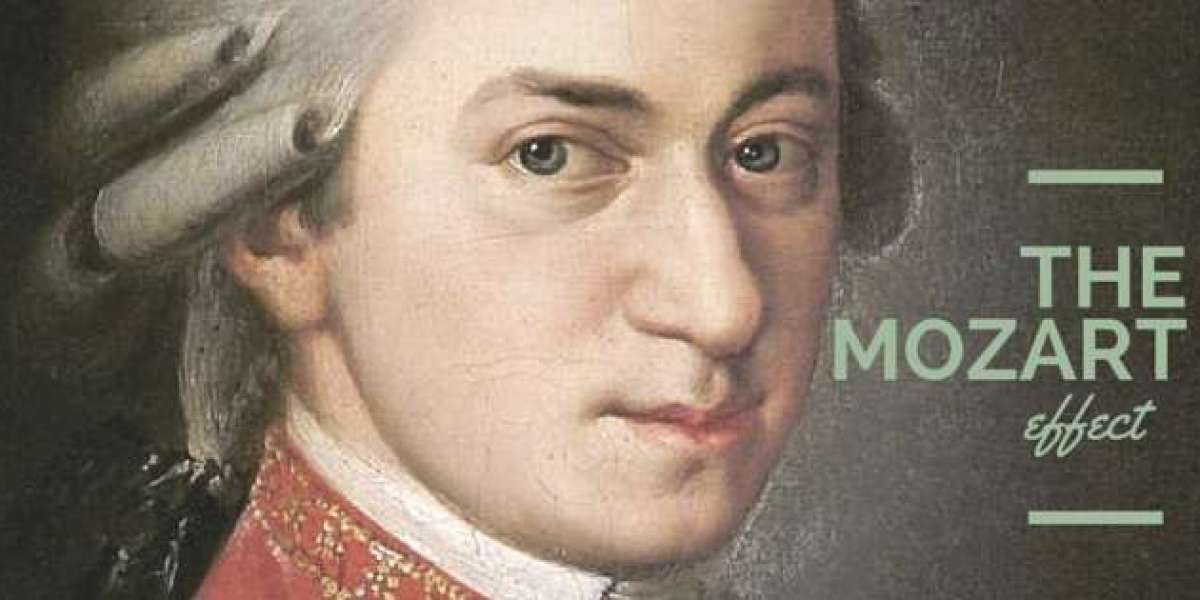article image source: thegilmore.org (link)
In the early 1990s, a fascinating idea began capturing public imagination: what if simply listening to classical music — especially Mozart — could make you smarter? The so-called "Mozart Effect" was born, promising cognitive enhancements from a few minutes of classical listening. It sparked media hype, influenced public policy, sold millions of albums, and created a multi-million dollar industry aimed at boosting brainpower through music.
advertisement
But what does the science say? Does the Mozart Effect hold up to scrutiny? And if not, what can music actually do for the brain?
Let’s unpack the myth, the media, and the science.
Mozart: Symphony No. 25 in G minor -- Takács-Nagy, Weinberger Chamber Orchestra
Where It All Began: The 1993 Rauscher Study
The Mozart Effect originated from a 1993 study by researchers Frances Rauscher, Gordon Shaw, and Katherine Ky. In this experiment, 36 college students listened to either:
Mozart's Sonata for Two Pianos in D Major (K. 448),
a relaxation tape, or
silence.
After each condition, participants took a spatial reasoning test, part of the Stanford-Binet intelligence scale. Results showed a temporary boost in spatial IQ — by 8 to 9 points — after listening to Mozart. But the effect only lasted about 10–15 minutes.
Despite the authors’ cautious interpretation, media outlets ran wild with the idea that “Mozart makes you smarter.” The term "Mozart Effect" was coined by journalists, not scientists, and soon became a cultural phenomenon.
The Hype and the Backlash
Following the hype:
Georgia’s governor passed a bill distributing Mozart CDs to new parents.
Florida law required classical music in preschools.
The “Baby Mozart” brand and Baby Einstein products flew off the shelves.
The U.S. President and celebrities promoted music in education as a cognitive enhancer.
But science pushed back. Replication attempts were inconsistent. Some studies confirmed a mild, short-lived effect, while others showed no improvement at all. In one analysis, over 80% of Americans believed classical music boosts intelligence, even though the evidence was shaky.
So, what's really going on?
How Music Affects the Brain
Modern tools like fMRI and EEG scans show that music activates many parts of the brain — including areas involved in emotion, memory, language, and spatial reasoning.
Key points:
Rhythm and pitch processing occurs mainly in the left hemisphere.
Timbre and melody activate the right hemisphere.
Spatial-temporal reasoning (used in puzzles or math) and music share overlapping brain regions, particularly the prefrontal cortex and precuneus.
In other words, listening to music — especially structured compositions like Mozart’s — may “prime” certain brain areas linked to reasoning. But that doesn’t mean it makes you permanently smarter.
Mood, Arousal, and the Real Mozart Effect
The more compelling explanation is the “arousal-mood hypothesis”:
Music doesn’t directly boost IQ — it enhances mood and alertness, which in turn improves cognitive performance, especially on tasks like memory, attention, or spatial reasoning.
Studies found:
Fast, upbeat music (like Mozart’s Sonata K. 448) improves mood and arousal → better performance.
Slow, sad music (e.g., Albinoni's Adagio in G Minor) had no effect or worsened mood.
Background music that's too fast or loud can impair reading and comprehension.
So, it’s less about Mozart specifically — and more about how music makes you feel.
Musicians vs. Non-Musicians
Research also shows that musicians often outperform non-musicians on memory and cognitive tasks. Why?
One theory is that musicians develop greater synaptic plasticity — the brain’s ability to form and reorganize connections. Musical training strengthens networks involved in memory, language, and visuospatial skills.
In experiments:
Musicians performed best in cognitive tasks when listening to classical music.
Non-musicians did fine across genres but performed better with any background music than with silence.
Music’s effect also appears to differ by gender — women often perform better on memory tasks under musical conditions.
What About Children and Long-Term Effects?
While most studies show short-term effects, some research suggests long-term benefits for children involved in music training:
Preschoolers who received six months of keyboard lessons scored 30% higher on spatial-temporal tests than peers who received computer lessons or none.
Improvements lasted at least 24 hours, possibly longer.
Piano training has also been linked to better math skills.
However, these benefits come from learning music — not just listening to it.
⚡ Mozart and Epilepsy: A Surprising Turn
Interestingly, Mozart’s music may have medical applications. In patients with epilepsy, studies have found that listening to Sonata K. 448 reduces seizure activity:
In one case, a comatose patient with frequent seizures showed a dramatic reduction in abnormal brain activity during music exposure.
Some children with epilepsy experienced fewer attacks and reduced EEG abnormalities after regular listening.
Researchers think it may relate to long-term periodicity — patterns in Mozart’s music that may resonate with brain rhythms. Not all music works: Philip Glass and pop music did not show the same benefits.
So… Is the Mozart Effect Real?
Yes — but not in the way many people think.
✅ True:
Listening to certain music can temporarily improve spatial reasoning.
Music boosts mood and arousal, which can improve focus and memory.
Musical training enhances cognitive development, especially in children.
Music can reduce epileptic brain activity in some patients.
❌ False:
Mozart (or any music) doesn’t permanently raise IQ.
Listening to music won’t make babies geniuses.
The benefits aren’t exclusive to Mozart — other classical or preferred music can work too.
✨ Conclusion: Music, the Mind, and Human Potential
Whether you’re solving puzzles, working on a project, or calming your nerves, music can unlock parts of your brain in powerful ways.
The Mozart Effect, despite being overhyped, led to a deeper scientific exploration of how music influences the mind. While it won’t turn you into Einstein overnight, music — especially when chosen wisely — can be a tool for mental focus, emotional balance, and even neurological healing.
So instead of asking "Does Mozart make us smarter?", perhaps the better question is:
How can we use music more intentionally to enhance learning, creativity, and well-being?
Whether it’s Bach, Beatles, Beyoncé — or yes, Mozart — the key is finding music that resonates with you. Because when the music feels right, the brain often follows.
Thank you !








